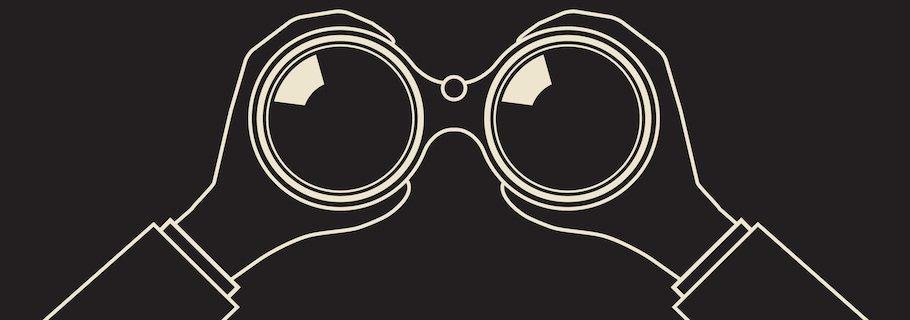It began with a young man and his simple question: What’s in “the look?” He wanted to know why he looks and, even more pressingly, why it is so difficult not to look. Why would he look at what he cannot have? What’s going on in his heart when he takes that peek?
Not every look turns into adultery, but all adultery begins with the look.
We all know the look. It’s that lust-fueled glance, the eyes that linger too long, the neck on the swivel, the hopeful glimpse of something forbidden. It may not be a full-fledged sexual fantasy, it may not be all Jesus meant when he spoke of committing adultery in the heart, but it is not far off. Not every look turns into adultery, but all adultery begins with the look. Though men may be particularly susceptible to it, it transcends gender so that women, too, are at least familiar with it.
The look must be what Job covenanted against when he said, “I made a covenant with my eyes not to look lustfully at a young woman.” He knew he could look at a woman with purity or he could look with lust, that the same eyes could look upon the same young woman and be fueled by lust or by love; the look is when the eyes are controlled by lust. We are all too familiar with the look. But have we really considered what it’s all about, why we do it, what it means?
When I was a young man I was visiting some friends and he, an older Christian man, unashamedly watched a woman walk by, only to explain it away: “It doesn’t matter where I get my appetite, as long as I eat at home.” But it is not that simple, not that innocent, not that innocuous. There is something nefarious in the look, something far more evil than we may think. I am convinced that the look is pride as much as it is lust. The lust of it is born out of pride.
The look is more than merely resting the eyes on an intriguing sight: it is an evaluation. This is what distinguishes the lustful look from the loving look, what distinguishes the look from simply viewing the world around us–the eyes linger and as they linger, they evaluate. In a second they take in the sight and they pass judgment based on this question: “Is she worthy of me? Is he worthy of me?”
The one who looks with lust has placed himself at the very center of the universe and functionally believes that others exist for his pleasure. In pride he elevates himself to the place of God. People do not exist to bring glory to God, but to bring pleasure to him. Another person’s worth can be determined by her potential to bring him pleasure. Her value is not in bearing God’s image, but in her ability to please the looker.
As he looks he evaluates, and if she meets his criteria he deems her valuable
As he looks he evaluates, and if she meets his criteria he deems her valuable; this may be where a full-out sexual fantasy begins, for his heart screams that it will be satisfied only by having her, by conquest, by making her worship him with her body. If she fails to meet his criteria, she has no great value and can be judged as lacking, unfit, unsuitable, unworthy. She fails to meet the standards of this deity and is passed over. Do you see the overwhelmingly ugly pride of it?
The way to stop the look is not simply to modify behavior–to train yourself to bounce your eyes, as some authors suggest–but to realign your heart. The look will stop when the evaluation stops. The evaluation will stop only as you dethrone yourself, when you learn to see every person as significant in and of himself or herself, when you see others through the eyes of God. And this is where you see again the power of preaching the gospel to yourself, of knowing, living and breathing the gospel. The gospel reminds you of who you are (a sinner!) and what you have received (grace!) and must therefore generate humility. It lays you on your face before the One who sits upon that throne, reminding you that he is the center of history, the center of the universe, while you are not. As the gospel enthrones the Savior, it dethrones the sinner.
Image credit: Shutterstock










